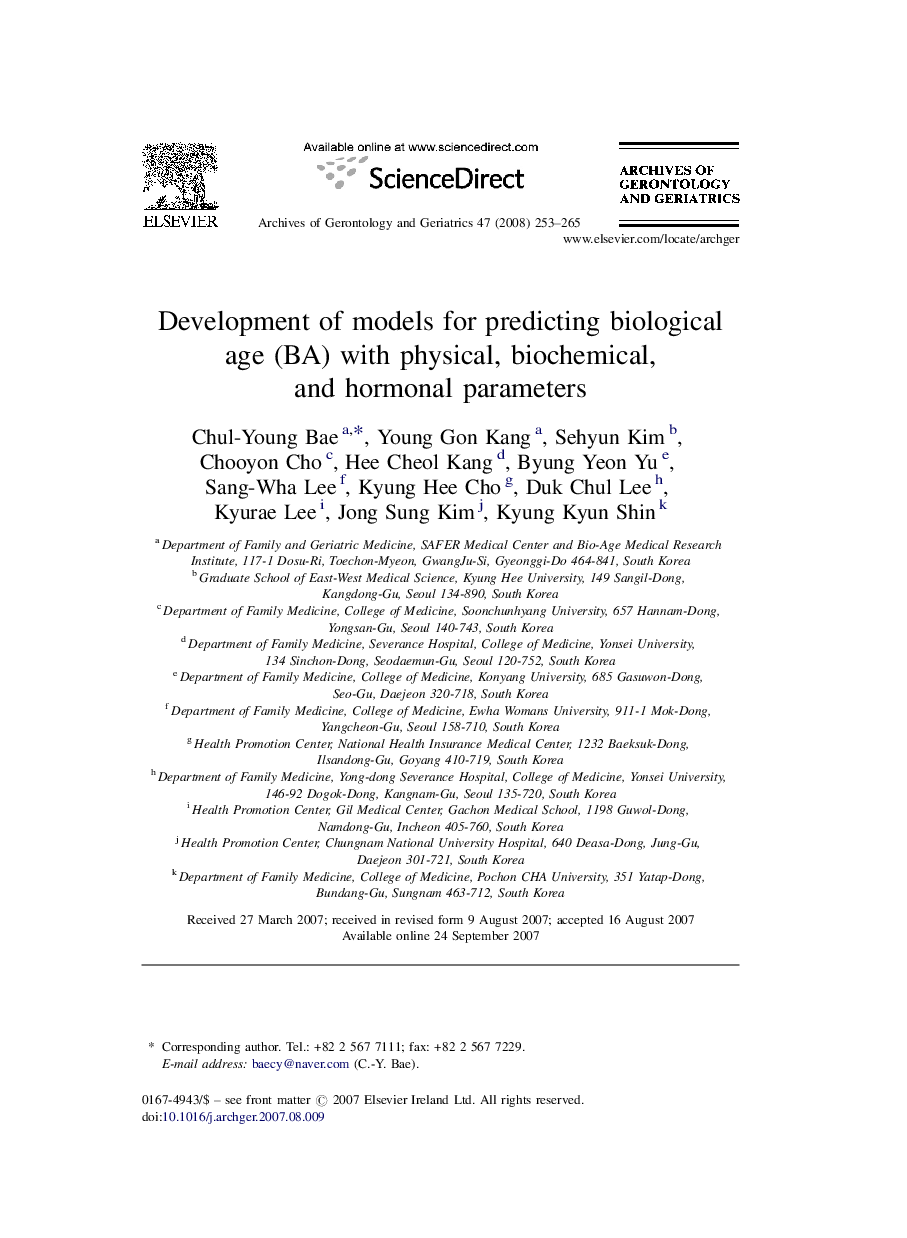| Article ID | Journal | Published Year | Pages | File Type |
|---|---|---|---|---|
| 1904130 | Archives of Gerontology and Geriatrics | 2008 | 13 Pages |
Individual differences are the hallmark of aging. Chronological age (CHA) is known that fails to provide an accurate indicator of the aging but biological age (BA) estimates the functional status of an individual in reference to his or her chronological peers on the basis of how well he or she functions in comparison with others of the same CHA. Therefore, we developed models for predicting BA that can be applicable in clinical practice settings. This was a community-based cross-sectional study. Subjects were recruited from the health promotion center in Korea from 2001 to 2005. Among these, data obtained from the 3575 participants (1302 men and 2273 women) was used for clinical evaluation and statistical analysis. For our test battery we selected 25 parameters among the routine tests. For males, the best models were developed using 15, 7, 5, and 4 of the 25 chosen parameters for total, physical, biochemical and hormonal characteristics, respectively (R2 = 0.62, 0.38, 0.33, and 0.36, respectively). Similar to males, for the females, 14, 6, 8, and 3 parameters were developed as the models (R2 = 0.66, 0.40, 0.42, and 0.37, respectively). Our BA prediction models may be used as supplementary tools adding knowledge in the evaluation of aging status.
